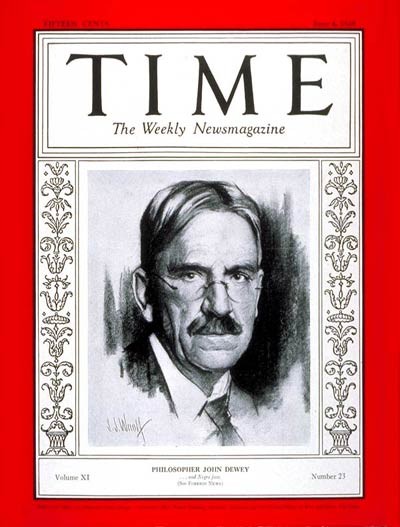John Dewey, "The Meaning and Office of Liberalism" (1935)
John Dewey was an American philosopher, psychologist, and educational reformer who spent a great portion of career as a professor at Columbia. Dewey lived from 1859 to 1952, experiencing in his adult life some of the most profound transformations in American society. In his lifetime, Dewey was seen as the preeminent American philosopher and public intellectual, especially for his contributions to the philosophical movements of American pragmatism and democratic liberalism. In addition, his theory and advocacy of progressive education revolutionized the purpose of schooling in American life.
You will be reading an excerpt from his book, Liberalism and Social Action—one of his most radical Leftist works, heavily influenced by Karl Marx. In the book, Dewey seeks to revitalize the concepts of liberalism we saw last week in John Locke’s Second Treatise on Government. Importantly, though, he critiques the traditional liberal faith that values such as equality, liberty, and independence can be provided through a “laissez-faire” economic system, with a limited role for government. In doing so, Dewey offers a vision for liberalism in the twentieth century that looks a lot socialism, believing that the highest human values can only be achieved through an expanded role for government.
